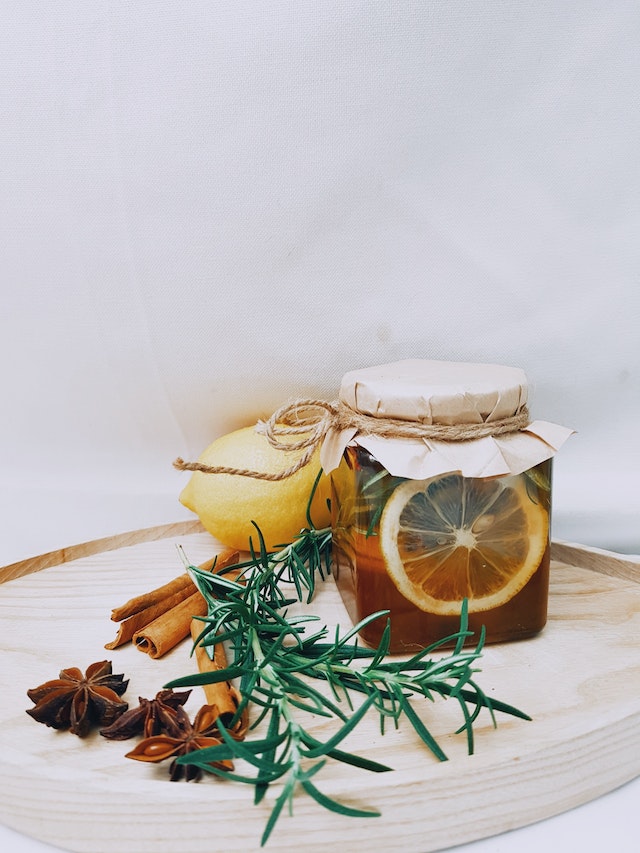
As we strive towards a healthier lifestyle, many of us tend to turn towards natural remedies for various ailments. Whether it’s a headache, a cough, or a stuffy nose, there is always a natural way to soothe the discomfort. Let’s explore some of these natural remedies that have been used for centuries.
While natural remedies have been used for centuries, the scientific understanding behind their effectiveness is a topic of great interest. The study of natural remedies, also known as herbal medicine or traditional medicine, is rooted in the belief that nature provides powerful solutions to various health concerns. Let’s delve into the science behind these natural remedies and explore how they can benefit our well-being.
One key aspect of natural remedies is the presence of bioactive compounds in plants. These compounds, such as alkaloids, flavonoids, and terpenoids, have been found to possess medicinal properties. Research suggests that these bioactive compounds interact with our body’s physiological processes, targeting specific receptors or enzymes to produce therapeutic effects.
For example, chamomile, often used as a soothing herbal remedy, contains a compound called apigenin. Apigenin has been shown to have anti-inflammatory and antioxidant properties, which can help reduce inflammation and combat oxidative stress in the body. Similarly, ginger, a popular natural remedy for digestive issues, contains gingerol, a compound with anti-nausea and anti-inflammatory effects.
Furthermore, natural remedies often work in synergy, meaning that the combination of various compounds found in plants can enhance their therapeutic benefits. This phenomenon, known as the “entourage effect,” suggests that the combined action of multiple compounds can elicit a stronger overall effect than individual compounds alone.
In recent years, scientific studies have begun to shed light on the mechanisms behind the efficacy of natural remedies. Researchers have explored the effects of specific herbal extracts or essential oils on cellular processes, gene expression, and biochemical pathways. These studies have provided valuable insights into the potential mechanisms by which natural remedies exert their healing effects.
However, it’s important to note that while scientific research is uncovering the mechanisms behind natural remedies, the regulatory landscape surrounding herbal medicine can be complex. In many countries, natural remedies are categorized as dietary supplements, and stringent scientific evidence is required to make specific health claims.
Types of Natural Remedies

When it comes to finding relief from common ailments, natural remedies have been trusted for centuries. These remedies, derived from nature’s bountiful offerings, provide a gentle and holistic approach to healing. From herbs to essential oils, let’s explore the various types of natural remedies that have stood the test of time.
Herbal Remedies:
Herbal remedies are perhaps the most widely known and utilized form of natural remedies. These medicinal plants offer a plethora of healing properties. From soothing chamomile for stress relief to peppermint for digestive discomfort, herbs possess incredible therapeutic qualities. Combining them in teas, tinctures, or capsules can help address a wide range of health concerns, promoting overall wellness.
Aromatherapy
Aromatherapy harnesses the power of essential oils extracted from plants to restore balance to the mind, body, and spirit. By inhaling or applying these oils topically, their delightful scents and therapeutic properties can uplift the mood, relieve stress and anxiety, and alleviate various ailments. For instance, lavender essential oil is renowned for its calming effects, while eucalyptus oil can help ease congestion and promote respiratory health.
Homeopathic Remedies
Homeopathic remedies operate on the principle of “like cures like.” These remedies, derived from natural substances such as plants, minerals, or animal products, are diluted to an extremely minute amount to stimulate the body’s self-healing mechanism. They are commonly available in the form of pellets or liquid solutions, offering gentle relief for a wide array of ailments, including allergies, digestive disorders, and skin conditions.
Nutritional Remedies
Nutrition plays a vital role in our overall well-being, and incorporating certain foods and supplements into our diets can act as natural remedies for various health issues. For example, foods rich in antioxidants, such as berries and leafy greens, can support a healthy cardiovascular system and boost immunity. Similarly, adding omega-3 fatty acids found in fish, flaxseeds, and walnuts can aid in reducing inflammation and supporting brain health.
Hydrotherapy
Hydrotherapy, also known as water therapy, relies on the healing properties of water to promote wellness. This therapeutic technique involves using water in different forms, such as baths, compresses, or showers, to alleviate pain, improve circulation, and reduce stress. Whether it’s a warm bath with Epsom salts to soothe sore muscles or a refreshing cold compress to reduce inflammation, hydrotherapy can be a natural remedy for multiple ailments.
Incorporating these natural remedies into our lives can provide a gentle and effective alternative to conventional medicine. However, it is important to note that while natural remedies are generally safe, it is always advisable to consult a healthcare professional before beginning any new treatment to ensure it is suitable for your specific needs.
Common Ailments and Natural Remedies
Natural remedies offer a wide range of solutions for common ailments. These gentle and holistic approaches can soothe various discomforts without the potential side effects associated with conventional medicine. Let’s explore some common ailments and the corresponding natural remedies that can provide relief:

Headaches: When a headache strikes, instead of reaching for a painkiller, consider natural alternatives. Peppermint oil applied to the temples can help alleviate tension headaches, thanks to its cooling and calming properties. Additionally, feverfew, a herb known for its anti-inflammatory properties, has been used for centuries to treat migraines.
- Digestive Issues: If you’re experiencing digestive discomfort, natural remedies can offer relief. Ginger has long been utilized to ease nausea, bloating, and indigestion. Brewing a cup of ginger tea or chewing on ginger candies can help alleviate these symptoms. Peppermint tea can also aid in soothing an upset stomach and relieving gas.
- Sleep Troubles: If you find it difficult to fall asleep or stay asleep, natural remedies can help promote a restful night’s sleep. Lavender essential oil has calming properties and can be used in a diffuser or added to a warm bath for a relaxing pre-bedtime ritual. Additionally, herbal teas made with chamomile or valerian root can help ease anxiety and encourage better sleep.
- Respiratory Congestion: When faced with nasal congestion or a nagging cough, natural remedies can provide relief. Eucalyptus essential oil, known for its expectorant properties, can be added to a humidifier or a steam inhalation to help clear the sinuses. Honey, with its soothing properties, can be consumed as a natural cough suppressant.
- Skin Irritations: For various skin irritations such as rashes, insect bites, or sunburns, natural remedies can provide relief and promote healing. Aloe vera gel, derived from the succulent plant, has soothing and anti-inflammatory properties, making it an effective remedy for sunburns. Applying a thin layer of coconut oil can help alleviate itching and irritation from insect bites.
These are just a few examples of common ailments and the corresponding natural remedies that can offer relief. It’s important to remember that natural remedies may work differently for each individual, and it’s always wise to consult with a healthcare professional if symptoms persist or worsen.
Precautions and Considerations
When exploring the world of natural remedies, it is essential to approach them with caution and awareness. While natural remedies can provide relief for various ailments, there are certain precautions and considerations to keep in mind.

Consultation with a healthcare professional: Before incorporating any new treatment or remedy into your routine, it is crucial to consult with a healthcare professional. They can provide guidance based on your specific health needs and any pre-existing conditions or medications you may be taking. This is especially important if you are pregnant, breastfeeding, or have chronic health issues.
Quality and authenticity: When purchasing natural remedies, ensure that you are sourcing them from trustworthy and reputable sources. Look for organic and certified products to ensure their quality and authenticity. It is also important to follow dosage instructions and not exceed recommended amounts.
Potential allergies or side effects: Just like with any other form of treatment, natural remedies can have potential allergens and side effects. It is essential to be aware of any known allergies or sensitivities you have to certain herbs or plants. If you experience any adverse reactions or discomfort after using a natural remedy, discontinue use and consult a healthcare professional.
Interactions with medications: Natural remedies, like conventional medicines, can interact with certain medications. Always inform your healthcare professional about any natural remedies you are using to ensure there are no potential interactions that may affect the efficacy or safety of your prescribed medications.
Personal tolerance and effectiveness: Natural remedies may work differently for each individual. What may be effective for one person may not have the same effect on another. It is important to be patient and allow time for the remedy to work, while also being mindful of your body’s response. If a particular remedy does not provide the desired results, it may be worth exploring other alternatives or consulting with a healthcare professional for guidance.
Making and Using Natural Remedies at Home
Creating your own natural remedies at home can be a rewarding and empowering experience. Not only can it save you money, but it also allows you to have control over the ingredients and ensures that you are using the freshest and most natural components. Here are a few simple recipes to get you started on your journey of making and using natural remedies at home.
Herbal Infusions
Herbal infusions, also known as herbal teas, can be a wonderful way to take advantage of the medicinal properties of herbs. To make a basic herbal infusion, simply add a tablespoon of dried herbs or a handful of fresh herbs to a cup of boiling water. Allow the mixture to steep for about 10-15 minutes, and then strain the herbs and enjoy your herbal tea. Some common herbs used in herbal infusions include chamomile, peppermint, and lavender.
Soothing Bath Soaks
A warm bath can be incredibly soothing, and adding natural ingredients to your bathwater can enhance its therapeutic effects. For a relaxing bath soak, mix a cup of Epsom salts with a few drops of your favorite essential oil, such as lavender or eucalyptus. Adding dried herbs like chamomile or rose petals can also create a fragrant and calming experience. Simply dissolve the mixture in warm bathwater and soak for 20-30 minutes.

DIY Herbal Salves
Herbal salves are a versatile and convenient way to apply the healing properties of herbs directly to the skin. To make a simple herbal salve, start by infusing your chosen herb in a carrier oil such as olive oil or coconut oil. To do this, combine a cup of dried herbs or a handful of fresh herbs with a cup of carrier oil in a heat-proof jar. Place the jar in a saucepan filled with water and heat on low for several hours, ensuring that the water does not boil. Once the oil has infused with the herbs, strain the mixture, and then add beeswax to the oil to create a salve-like consistency. Allow the mixture to cool and solidify before using.
Homemade Healing Balms
Healing balms are a wonderful way to moisturize and nourish the skin while providing additional healing benefits. To make a simple healing balm, melt together equal parts of beeswax and a carrier oil, such as coconut oil or almond oil, in a double boiler. Once melted, remove from heat and add a few drops of essential oil for added fragrance and therapeutic properties. Some common essential oils used in healing balms include tea tree oil for its antibacterial properties and calendula oil for its skin-healing benefits. Pour the mixture into a clean container and allow it to cool and solidify before use.
Making and using natural remedies at home allows you to personalize your self-care routine and tailor it to your specific needs. By incorporating natural ingredients, you are harnessing the healing power of nature while promoting a holistic approach to wellness. Remember to always conduct thorough research, follow proper safety guidelines, and consult with a healthcare professional before using any new remedy, especially if you have underlying health conditions or are taking medications.
